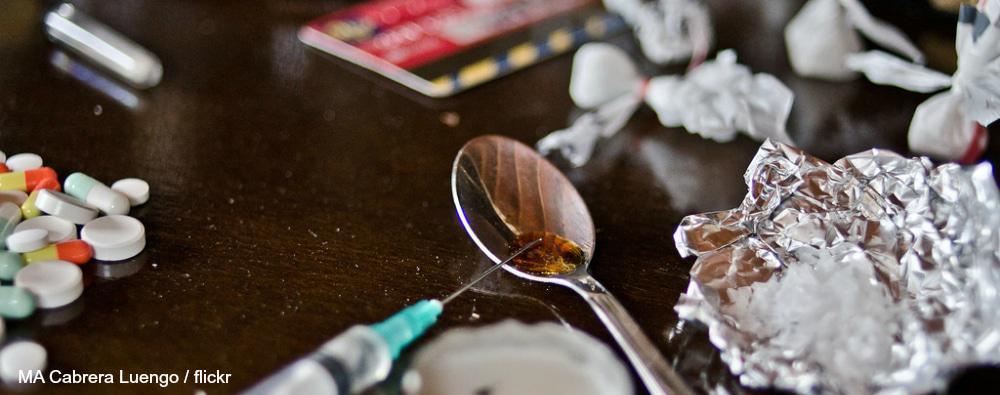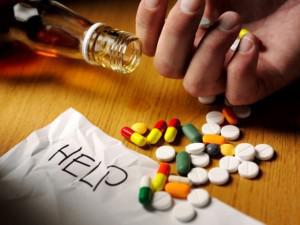Drug abuse fuelling gender-based violence in Soweto


The nongovernmental organisation Thathezakho After Care Centre offers childcare and early childhood development services in Dobsonville.
Dudu Ndaba is a social worker with the organisation and says that rising drug abuse is behind many of the GBV cases she handles.
“Most of cases that we receive (have to do with)… gender-based violence, which is more likely to come out of drug abuse,” Ndaba said.
Research has shown that women who have experienced GBV may be up to three times as likely to contract HIV.
While this increased risk has been widely associated with the physical trauma of sexual violence, the World Health Organisation notes that psychological abuse can also lead women to engage in HIV risk behaviours like transactional sex.
Youth march against drug, alcohol abuse
Local police confirmed that drugs remained the area’s most prevalent problem. In response, Thathezakho After Care Centre recently organised a youth march against drug abuse.
“Ignoring the problem is what we want to move away from,” said Thathezakho After Care Centre Project Manager Dumisani Mayisela, “We want to give a wake up call to every one living in the community of Dobsonville by taking this action is to help our brothers and sisters that are already affected.”
Local celebrities have joined the cause.
[quote float=”right”]“Using drug comes from losing hope and not being open to good opportunities”
Nolubabalo Cumbe from Snail Park has won the Miss Dobsonville crown two years running. She blames drug use on a lack of opportunities for young people but said it was never too late to quit.
“Using drug comes from losing hope and not being open to good opportunities,” she told OurHealth. “To those that are already into drugs, it is never too late for them to start afresh and there are rehabilitation centres to help.”
Noxolo Williams, 17, says she gets upset when she hears about young people who have died as a result of drugs.
“As teenagers we need to enjoy life without using substances or drugs, and focus to our futures,” she said.
The South African National Council on Alcoholism and Drug Dependence (SANCA) partners with government to provide subsidised drug abuse awareness, prevention and rehabilitation services in 15 in-patient facilities.
SANCA also provides community-based services through 30 local chapters. While SANCA has seen a rising number of heroin or opiate users, the organisation notes that alcohol and marijuana account for the largest number of their cases.
- Know someone who needs help? Find a SANCA branch close to you
Author
Republish this article
This work is licensed under a Creative Commons Attribution-NoDerivatives 4.0 International License.
Unless otherwise noted, you can republish our articles for free under a Creative Commons license. Here’s what you need to know:
You have to credit Health-e News. In the byline, we prefer “Author Name, Publication.” At the top of the text of your story, include a line that reads: “This story was originally published by Health-e News.” You must link the word “Health-e News” to the original URL of the story.
You must include all of the links from our story, including our newsletter sign up link.
If you use canonical metadata, please use the Health-e News URL. For more information about canonical metadata, click here.
You can’t edit our material, except to reflect relative changes in time, location and editorial style. (For example, “yesterday” can be changed to “last week”)
You have no rights to sell, license, syndicate, or otherwise represent yourself as the authorized owner of our material to any third parties. This means that you cannot actively publish or submit our work for syndication to third party platforms or apps like Apple News or Google News. Health-e News understands that publishers cannot fully control when certain third parties automatically summarise or crawl content from publishers’ own sites.
You can’t republish our material wholesale, or automatically; you need to select stories to be republished individually.
If you share republished stories on social media, we’d appreciate being tagged in your posts. You can find us on Twitter @HealthENews, Instagram @healthenews, and Facebook Health-e News Service.
You can grab HTML code for our stories easily. Click on the Creative Commons logo on our stories. You’ll find it with the other share buttons.
If you have any other questions, contact info@health-e.org.za.
Drug abuse fuelling gender-based violence in Soweto
by lungilethamela, Health-e News
July 9, 2014



